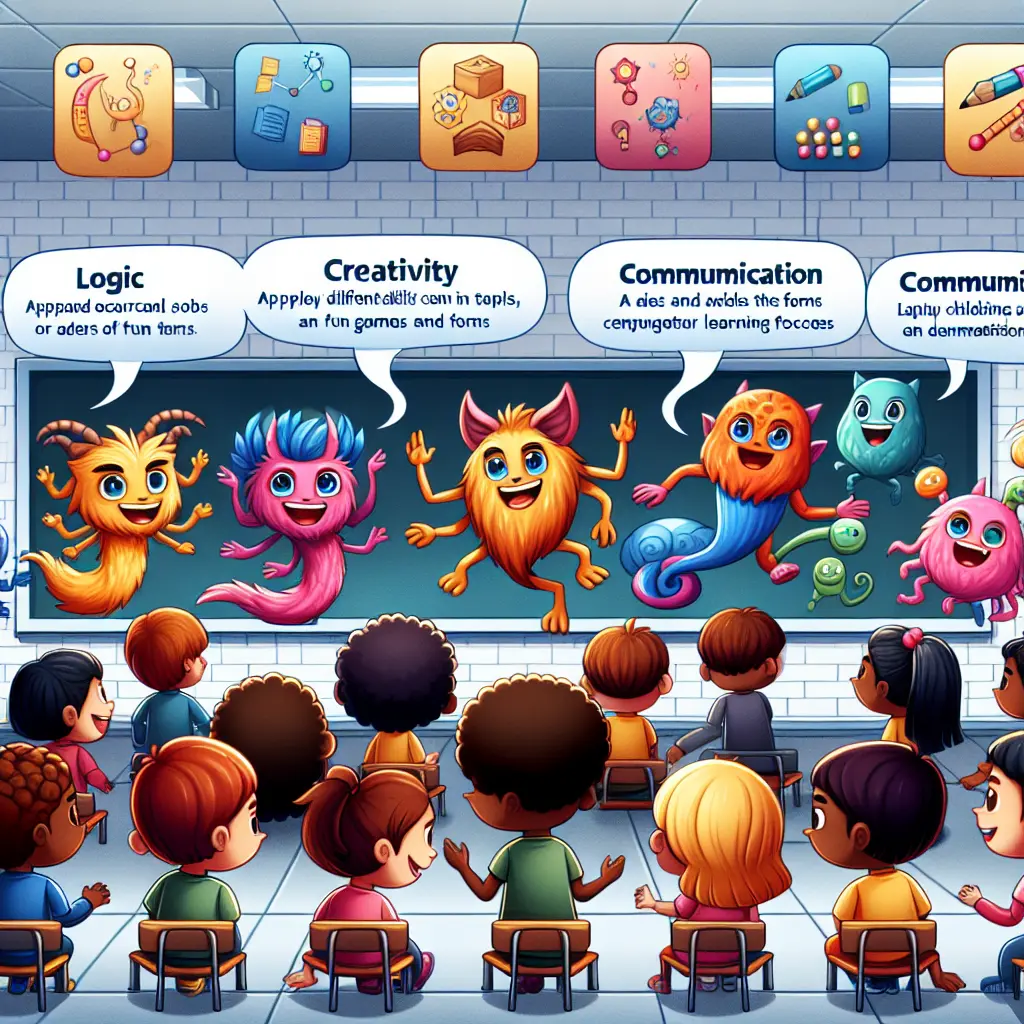
In the ever-evolving landscape of education, innovative methods to enhance learning are constantly sought after. Among the various tools and resources available, one might be surprised to find Pokémon—a franchise famous for its captivating games and adorable creatures—playing a significant role in educational development. This blog post delves into how Pokémon has transcended its entertainment roots to become a valuable educational aid, touching on everything from its benefits in cognitive and social development to its integration into classroom settings.
The Educational Benefits of Pokémon
Pokémon isn't just a source of entertainment for children and adults alike; it also offers substantial educational benefits. Research has shown that Pokémon games can help improve literacy, as players often need to read and comprehend complex instructions and storylines. Additionally, these games enhance problem-solving skills and strategic thinking because players must plan and execute strategies to advance in the game. The multifaceted nature of Pokémon gaming makes it an excellent tool for learning through play, an approach widely recognized for its effectiveness in educational psychology.
Pokémon in Learning Environments
Integrating Pokémon into learning environments can make education more engaging for students. Using Pokémon teaching tools, educators can create lessons that are not only more interactive but also more relatable to their students. For instance, math concepts can be taught through Pokémon battle statistics, fostering a fun and engaging way to develop numerical skills. The real-world applications of this approach were evident when Pokémon Ruby and Sapphire were almost named differently, showcasing the importance of branding and marketing—topics that can be discussed in business studies or media classes.
Leveraging Pokémon Games in Education
The use of Pokémon games in education goes beyond elementary learning; it extends into higher educational contexts where game-based learning is praised for its engagement and motivation potentials. For example, the strategic elements of Pokémon games can be used in problem-solving exercises in classrooms, encouraging students to think critically and analytically. Moreover, the recent inclusion of Pokémon Mystery Dungeon on Nintendo Switch Online, set to launch on August 9, provides another platform for educators to incorporate fun, interactive storytelling into their curriculum.
Pokémon's Role in Child Development
Beyond academic skills, Pokémon can significantly aid in child development. Engaging with Pokémon characters and stories can help children develop empathy and improve their social skills. Children often imagine the world from the perspective of various Pokémon, understanding their strengths and weaknesses, which can translate into better interpersonal relationships and emotional intelligence.
Educational Value of Pokémon
The educational value of Pokémon is also evident in how it encourages exploration and curiosity. As players navigate different worlds and interact with diverse characters, they learn about biodiversity, geography, and even aspects of culture. This kind of indirect learning is invaluable as it lays the groundwork for a more profound educational experience that extends outside the traditional classroom environment.
Pokémon in the Classroom
Teachers are increasingly recognizing the value of incorporating popular cultural elements like Pokémon into their teaching strategies. By using Pokémon as an educational aid, educators can make lessons more captivating and relatable, which increases student engagement and retention of information. This method also supports varied learning styles and abilities, making education accessible to a broader range of learners.
Recent Developments and Future Prospects
The integration of Pokémon into educational settings is gaining momentum with recent developments. For instance, the collaboration between Pokémon and Crocs points towards a trend where popular culture phenomena are leveraged in diverse markets and demographics. This collaboration could lead to themed educational materials that further engage students in their learning journeys.
Moreover, the upcoming releases of Pokémon TCG at retailers like Amazon and Best Buy highlight the ongoing popularity and potential new avenues for educational tools. These trading cards not only promote strategic thinking but also encourage literacy as players read card details and plan their moves.
Conclusion
Pokémon has indeed proven itself as more than just a gaming franchise; it's a versatile tool that enhances educational development. From improving literacy and numeracy skills to teaching strategic thinking and empathy, Pokémon's role in education is multifaceted. As we continue to explore and understand the benefits of game-based learning, Pokémon's potential as an educational tool is bound to expand even further.
In embracing the world of Pokémon, educators are not merely adopting a new teaching aid; they are also engaging with a cultural phenomenon that resonates with students globally. This engagement is crucial for a holistic educational approach that values both academic success and personal development.
Simon Peterman